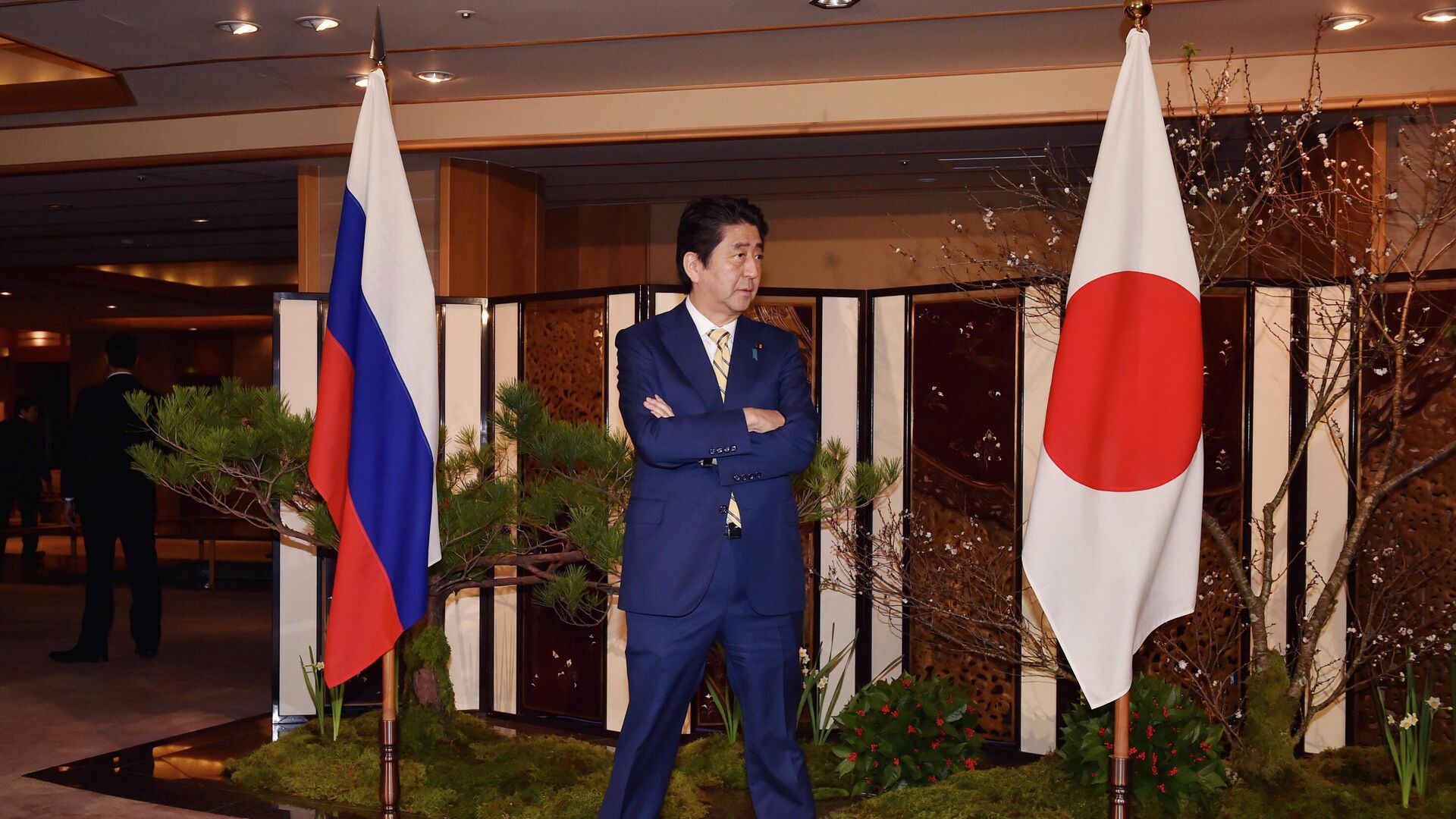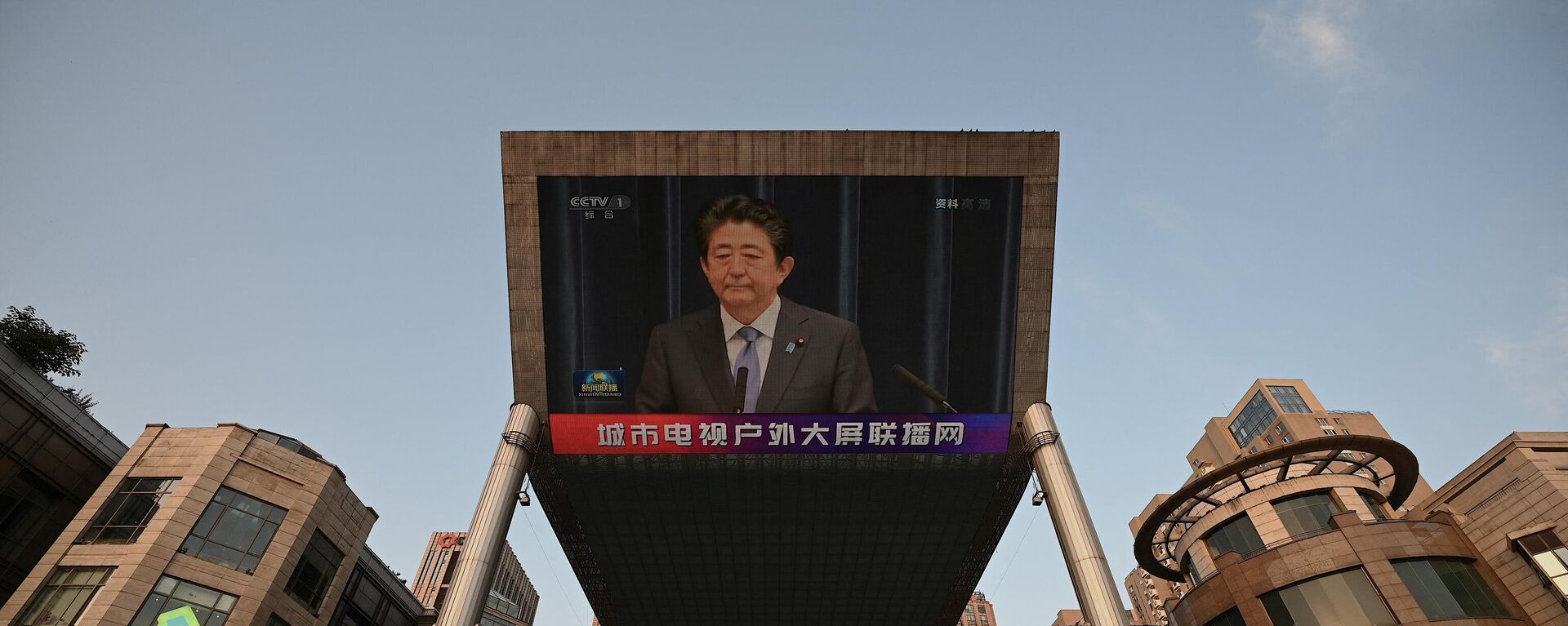https://sputnikglobe.com/20230211/japans-abe-european-leaders-opposed-sanctions-against-moscow-at-2014-g7-summit--memoir-reveals-1107336119.html
Japan's Abe, European Leaders Opposed Sanctions Against Moscow at 2014 G7 Summit, Memoir Reveals
Japan's Abe, European Leaders Opposed Sanctions Against Moscow at 2014 G7 Summit, Memoir Reveals
Sputnik International
The leaders of Japan, France, Germany and Italy were against the introduction of sanctions against Russia at the G7 meeting in Brussels in 2014, a posthumous memoir by former Japanese Prime Minister Shinzo Abe revealed.
2023-02-11T07:30+0000
2023-02-11T07:30+0000
2023-04-06T12:15+0000
asia
shinzo abe
memoirs
barack obama
japan
https://cdn1.img.sputnikglobe.com/img/07e6/08/17/1099885228_0:45:2951:1705_1920x0_80_0_0_cc70be993fd63a9219c6d95a3a60374a.jpg
The memoir, which was written in the form of interviews recorded from October 2020 to October 2021, was published earlier this week. The reason for the summit in question was the situation with Crimea, which, according to the results of the 2014 referendum, became part of Russia, as well as the country's exclusion from the G8. In the book, Abe recalled that at the meeting in Brussels, then-US President Barack Obama took a tough stance against Russia and personally handed out to the summit's participants a document containing several points of sanctions against Moscow, a move which surprised everyone present. After a very cautious attitude towards the Obama document was expressed by then-French President Francois Hollande, former German Chancellor Angela Merkel asked Abe to speak. The former Japanese prime minister urged all those gathered to avoid a split in the G7, "which will mean its end," and hash out the issue of sanctions for each country separately, in a working manner.According to Abe, Merkel told Obama whether it would be better to collect the papers that outlined Russia sanctions, after which the then-US president hastily bypassed the leaders and collected the documents. Abe, Japan's longest-serving prime minister, was in power from 2006–2007 and from 2012–2020. He was mortally wounded by shots fired by a 41-year-old man while giving a campaign speech for a colleague in the city of Nara on July 8, 2022. The politician was cremated and had a funeral at a Buddhist temple on July 12, which was attended by 26,000 people.
https://sputnikglobe.com/20220708/truly-heartbreaking-world-shocked-after-former-japanese-pm-shinzo-abes-assassination-1097103821.html
japan
Sputnik International
feedback@sputniknews.com
+74956456601
MIA „Rossiya Segodnya“
2023
Sputnik International
feedback@sputniknews.com
+74956456601
MIA „Rossiya Segodnya“
News
en_EN
Sputnik International
feedback@sputniknews.com
+74956456601
MIA „Rossiya Segodnya“
Sputnik International
feedback@sputniknews.com
+74956456601
MIA „Rossiya Segodnya“
shinzo abe, shinzo abe memoirs, abe opposed sanctions againts russia
shinzo abe, shinzo abe memoirs, abe opposed sanctions againts russia
Japan's Abe, European Leaders Opposed Sanctions Against Moscow at 2014 G7 Summit, Memoir Reveals
07:30 GMT 11.02.2023 (Updated: 12:15 GMT 06.04.2023) TOKYO (Sputnik) - The leaders of Japan, France, Germany and Italy were against the introduction of sanctions against Russia at the G7 meeting in Brussels in 2014, a posthumous memoir by former Japanese Prime Minister Shinzo Abe revealed.
The memoir, which was written in the form of interviews recorded from October 2020 to October 2021, was published earlier this week. The reason for the summit in question was the situation with Crimea, which, according to the results of the 2014 referendum, became part of Russia, as well as the country's exclusion from the G8.
In the book, Abe recalled that at the meeting in Brussels, then-US President
Barack Obama took a tough stance against Russia and personally handed out to the summit's participants a document containing several points of sanctions against Moscow, a move which surprised everyone present.
"Each of the European countries was economically connected with Russia, so they treated the sanctions with caution," Abe said in the memoir.
After a very cautious attitude towards the Obama document was expressed by then-French President Francois Hollande, former German Chancellor Angela Merkel asked Abe to speak. The former Japanese prime minister urged all those gathered to avoid a split in the G7, "which will mean its end," and hash out the issue of sanctions for each country separately, in a working manner.
According to Abe, Merkel told Obama whether it would be better to collect the papers that outlined Russia sanctions, after which the then-US president hastily bypassed the leaders and collected the documents.
Abe, Japan's longest-serving prime minister, was in power from 2006–2007 and from 2012–2020. He was
mortally wounded by shots fired by a 41-year-old man while giving a campaign speech for a colleague in the city of Nara on July 8, 2022. The politician was cremated and had a funeral at a Buddhist temple on July 12, which was attended by 26,000 people.



